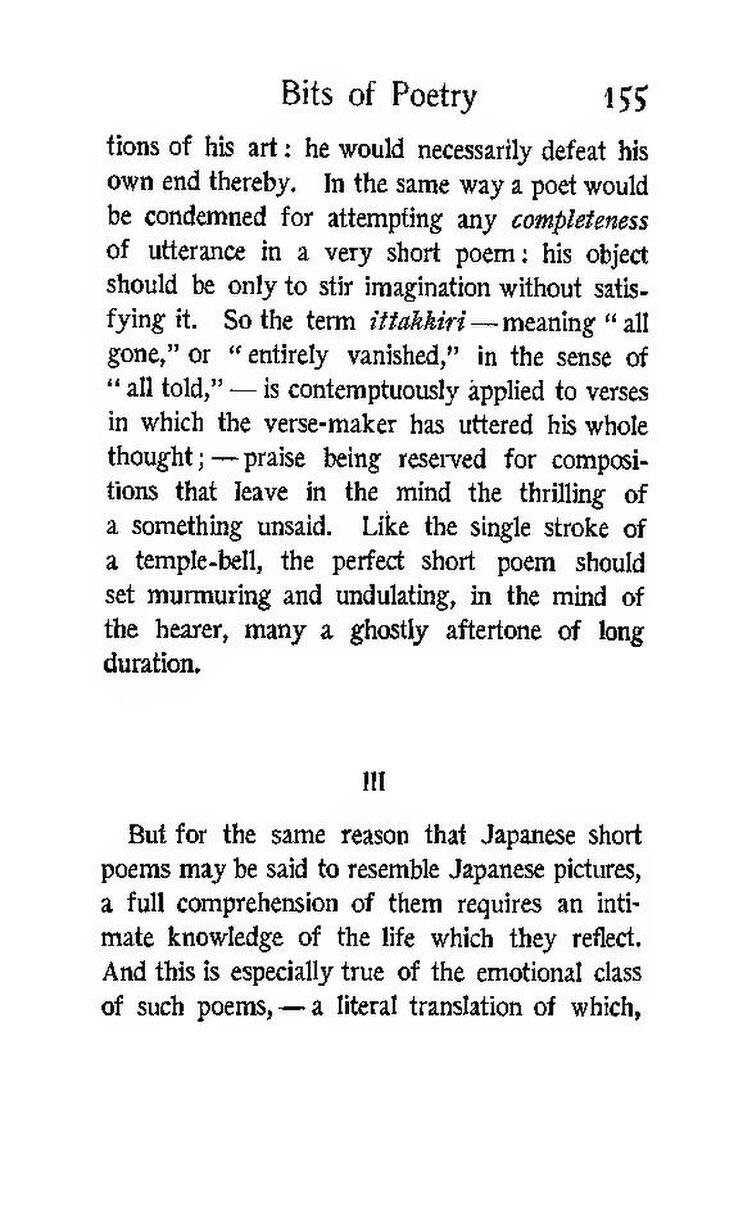tions of his art: he would necessarily defeat his own end thereby. In the same way a poet would be condemned for attempting any completeness of utterance in a very short poem: his object Should be only to stir imagination without satisfying it. So the term ittakkiri—meaning “all gone,” or “entirely vanished,” in the sense of “all told,”—is contemptuously applied to verses in which the verse-maker has uttered his whole thought;—praise being reserved for compositions that leave in the mind the thrilling of a something unsaid. Like the single stroke of a temple-bell, the perfect short poem should set murmuring and undulating, in the mind of the hearer, many a ghostly aftertone of long duration.
III
But for the same reason that Japanese short poems may be said to resemble Japanese pictures, a full comprehension of them requires an intimate knowledge of the life which they reflect. And this is especially true of the emotional class of such poems,—a literal translation of which,
